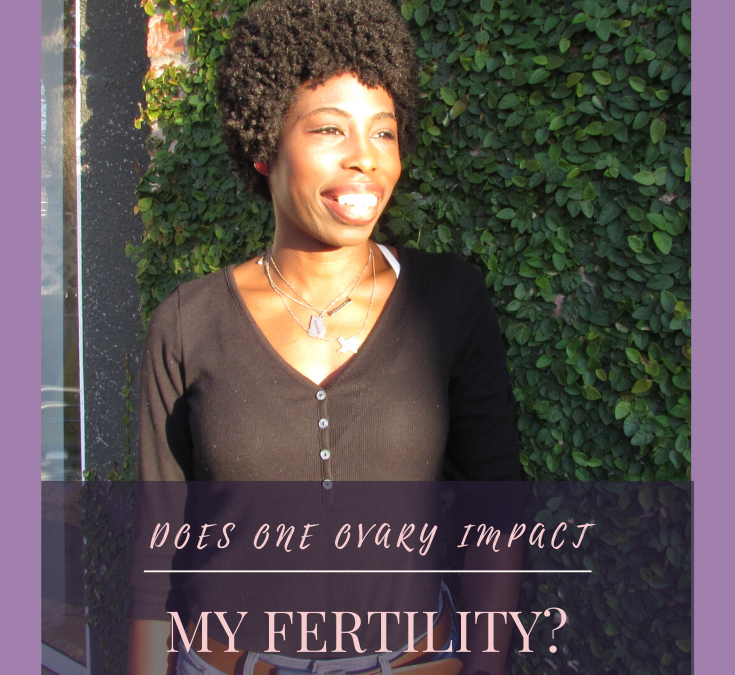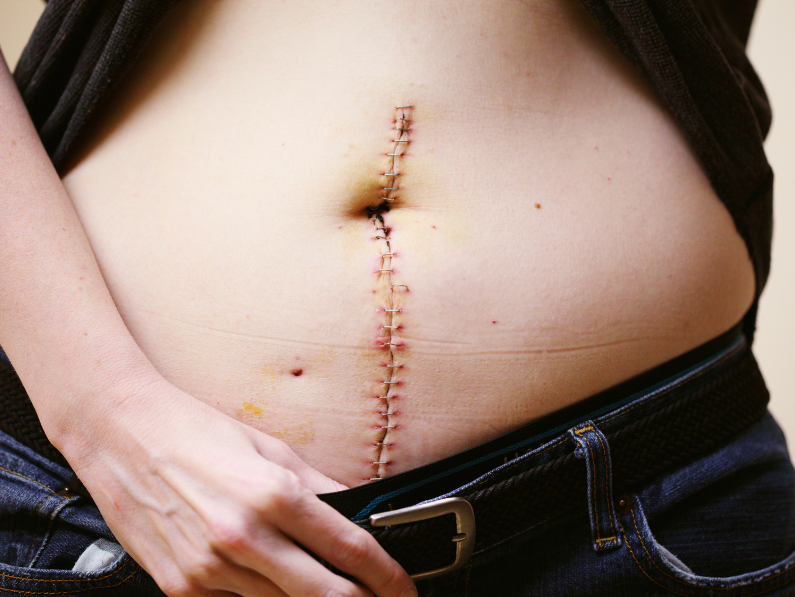Primary ovarian insufficiency (POI) is a reality you may face if you’re managing an autoimmune disease, health condition or receiving a surgery where it’s listed as a possible side effect. Such as was my case when the combination of endometriosis and endometriomas led me to have a unilateral salpingo-oophorectomy. While premature menopause was an additional threat I faced. I remember sailing past this first hurdle within the first 4 weeks of my recovery. I experienced my first post-surgery period and remember the immense relief. Yet, the question regarding my fertility and how the loss of my left ovary has impacted my chances of conceiving is still one that I find myself asking.
Page Contents
Primary Ovarian Insufficiency: What It Is
I’m sure you’re probably as clueless as I was when I first learned about primary ovarian insufficiency. Consequently, it’s best described as a condition in which a woman’s ovaries fail to function properly before the age of 40. Which is usually the time when a woman’s fertility begins to decrease and menopause is just around the corner. Yet with POI the ovaries stop producing normal amounts of estrogen and release eggs sporadically. Thus, contributing to issues with ovulation dysfunction, irregular periods and decreased fertility.
In some instances primary ovarian insufficiency is confused with premature menopause. But, these are two separate things. Premature menopause mainly deals with a woman undergoing menopause earlier than expected. Which in turn means she will no longer menstruate or be fertile. On the other hand primary ovarian insufficiency causes issues with ovulation dysfunction and irregular periods. Therefore, a woman can still become pregnant with this condition.

What Causes POI?
There are many underlying reasons that contribute to the onset of primary ovarian insufficiency. Yet, they all lead to the same issue. A decrease in estrogen production which in turn causes many of the symptoms and issues experienced with POI. Some common factors associated with primary ovarian insufficiency include: autoimmune disease, cancer treatments (chemotherapy and radiation), metabolic disorders, environmental toxins and surgical procedures such as the one I had. Learn more about my surgery experience here.
Symptoms to Beware Of
Primary ovarian insufficiency and menopause share similar symptoms. They both impact estrogen production causing levels to become low. And, they both increase your risk of heart disease, bone loss, and osteoporosis. Hence why, knowing how to distinguish between the two can aid in properly addressing it.
For starters, you need to understand that menopause involves the complete cessation of menstruation and reproduction. Whereas, primary ovarian insufficiency doesn’t cause menstruation to cease. Nor does it mean that a woman is incapable of reproducing. While it’s possible to struggle with fertility you can still become pregnant while having POI. So, experiencing irregularity with your periods, may be an early indicator of primary ovarian insufficiency. Additional symptoms to beware of include: hot flashes, night sweats, vaginal dryness, decreased libido, fertility struggles, irritability, and concentration issues.

Can Endometriosis Cause POI?
This was a big question for me. Especially, since there’s much mention of autoimmune disorders and chronic conditions contributing to the onset of primary ovarian insufficiency. Mostly, these disorders and conditions deal with complications that arise from low levels of estrogen. So, could a disease that’s largely associated with estrogen dominance contribute to primary ovarian insufficiency. And, the answer I found was yes and no.
In some ways endometriosis can contribute to POI. Especially, if there is endometriosis or endometriomas present on the ovaries. Thus, damaging healthy ovarian tissue. Another way endometriosis increases the risk of primary ovarian insufficiency is due to the surgical procedures used to treat it. Procedures similar to mine ( unilateral salpingo-oophorectomy) increase the risk of healthy tissue being removed from the ovary. Furthermore, your risk increases if multiple surgeries are performed.
Managing POI
Consequently, there’s no way to prevent primary ovarian insufficiency or reverse it. Learning how to identify and manage symptoms through lifestyle modifications and wellness habits is key. That’s why I find it so important to track my fertility utilizing the symptothermal method. This keeps me in tune with what’s happening with my body at all times. So, if there are changes occurring with my reproductive health I’m able to spot them. For instance, initially post surgery my basal body temperature was everywhere which I’m sure had a lot to do with my body working to find it’s balance and recovering. But, over the past month I’ve seen this improve. And, I’m positive that the focus I’ve placed on my nutrition, fitness, supplementation and stress management have definitely helped with this.

Furthermore, I believe that allowing my body to fully heal and recover at its own pace has also been key. I haven’t rushed anything. I’ve taken my time and respected my body. I’m hoping all of this pays off and that once I hit the one year anniversary of my surgery I can begin moving towards starting my family.
The Reality Is..
While there’s still a lot of unanswered questions regarding my fertility and my ability to start a family. I understand that in time those questions will be answered. I’m only 6 months post-surgery. And, I’ve been recovering quite well. Additionally, I’ve made peace with the fact that regardless of all that I’ve done I may not get pregnant. And, I’ve accepted this. I think endometriosis and infertility have caused me enough grief, tears and frustration. So, I don’t want to become too attached to any particular outcome when it comes to my life. I will be immensely grateful and happy whatever’s in store for me. The improvement in the quality of life and the end of daily, cyclical pain is enough for me.
References
- Healthline | Oophorectomy : What To Expect | medically reviewed by Debra Wilson, PhD, MSN, RN, IBCLC, AHN-BC, CHT on July 19, 2017; written by Ann Pietrangelo
- Mayo Clinic | Primary Ovarian Insufficiency | published on Oct 22, 2019
About the Author

Hi, my name is Kathleen but you can call me Kat. I’m a health and wellness professional turned freelance writer and content creator. You can find me on YouTube and Instagram. If you take the opportunity to visit me on my other platforms don’t hesitate to leave a message, I would love to hear from you!
Subscribe!
Get updates and my monthly newsletter delivered to your inbox!
[gravityform id=”1″ title=”false” description=”true”]






